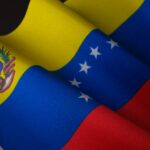Foundations of Liberty: Cato Institute
 The Cato Institute, well known among our readers, was founded in 1974 by economist Murray Rothbard, businessman and entrepreneur Charles Koch, and libertarian leader Ed Crane who remained the president of Cato until October of last year.
The Cato Institute, well known among our readers, was founded in 1974 by economist Murray Rothbard, businessman and entrepreneur Charles Koch, and libertarian leader Ed Crane who remained the president of Cato until October of last year.
Cato’s mission really is one of a libertarian mind, namely to research and increase public understanding of the benefit of public policies that are based on the principles of individual liberty, limited government, and free markets. Cato owes its name to Cato’s Letters, a series of essays published in 18th-century England that presented a vision of society free from excessive government power. Those essays played a role in inspiring the architects of the American Revolution. Those simple, timeless principles of that revolution, individual liberty, limited government, and free markets turn out to be even more powerful in today’s world of global markets and unprecedented access to information than Jefferson or Madison could have imagined.
We see Cato’s commitment to defending liberty in many places on the public policy front. Frequently today one of the major party’s positions may be one that is antithetical to liberty. Time and time again Cato is on the frontline defending the cause with clearly thought reasoned work. Their commitment often pits them against some in both parties and yet scholars at Cato never lose sight of what they are fighting for.
Further, Cato’s non-interventionist foreign policy views and strong support for individual and civil liberties have frequently led Cato scholars to criticize those in power, both conservative and liberal. For example, Cato scholars opposed President George H. W. Bush’s 1991 Gulf War operations, President Bill Clinton’s interventions in Haiti and Kosovo, and President George W. Bush’s 2003 invasion of Iraq. As a response to the September 11 attacks Cato scholars supported the removal of al Qaeda and the Taliban regime from power, but were against an indefinite and open-ended military occupation of Afghanistan.
Cato also strives to reach out and educate young people. They hold numerous programs, presentations, and panels throughout the years and especially during the summer when there are so many interns in the DC area. Another major thing Cato does to reach out to young people is Cato University. This is Cato’s premier educational event of the year. This annual program brings together faculty and students from across the country and, often, from around the globe–all sharing a commitment to liberty and learning more about it. Scholars such as Dr. Tom Palmer and public servants like Senator Rand Paul are frequent speakers.
In short Cato strives to advance the ideas that social and economic freedom are not just the best policy for a free people, they are the indispensable framework for the future.
Michael LaCroix is an intern with America’s Future and a rising senior at Grand Valley State University.




